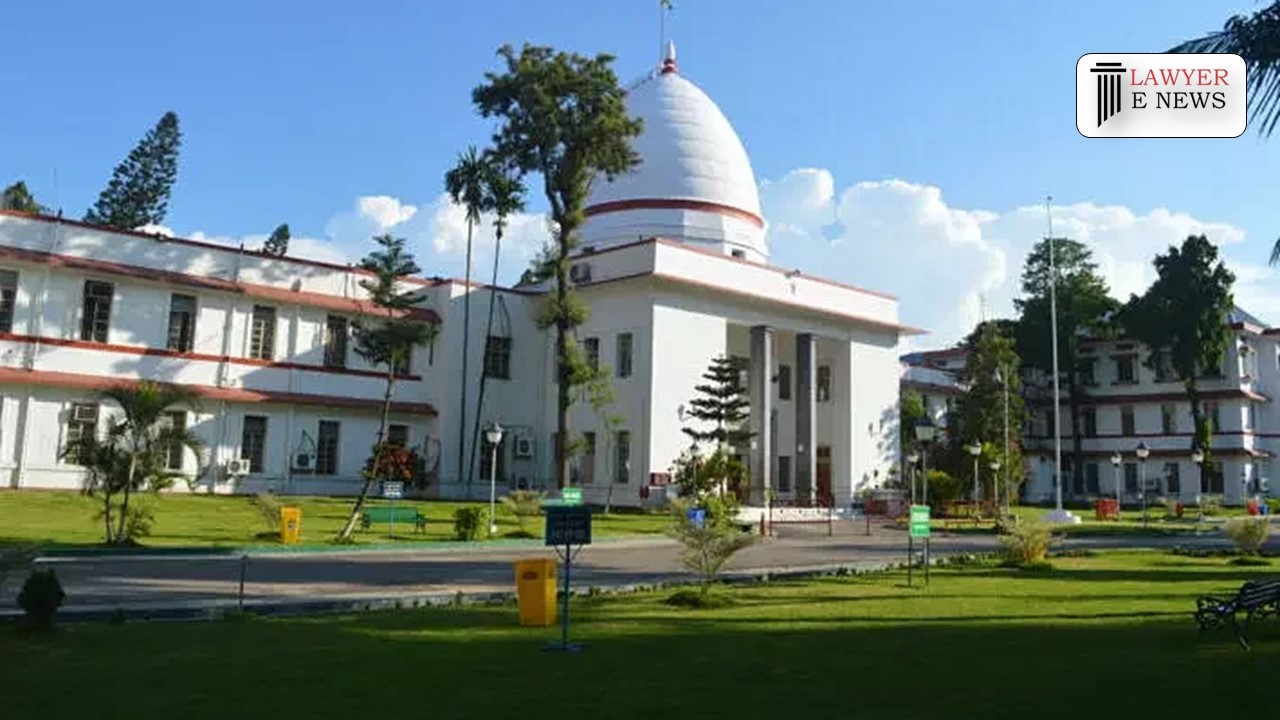-
by Admin
15 February 2026 5:35 AM



Gauhati High Court, in the case Ajit Deb Barman and Tapan Barman v. The State of Assam & Ors., allowed the petitioners' plea for reinstatement as Circle Organizers (COVDO) under the Village Defense Organization (VDO) after their illegal discharge. The petitioners, who had served for decades on a temporary basis, sought regularization of their services. The court quashed their termination and directed the State to reinstate them and consider their regularization within three months, applying the principles laid down in Uma Devi.
The court found that the petitioners' discharge without notice or a valid reason violated the principles of natural justice. Despite having served as COVDOs for over 20 years, the authorities failed to provide any justification for their termination and erroneously classified them as Home Guards.
The petitioners, Ajit Deb Barman and Tapan Barman, were appointed as Circle Organizers (COVDO) under the Village Defense Organization in 1993 and 1996, respectively. They served for many years at Belsor and Tihu Police Stations in Assam. Despite their long service, they were discharged in 2015, and their positions were terminated without notice. The petitioners challenged their termination and sought regularization of their services, pointing to the Supreme Court’s judgment in Secretary, State of Karnataka vs. Uma Devi (2006), which mandates regularization of employees in long-term service on sanctioned posts.
The petitioners had earlier approached the court in 2015, which had set aside their termination and ordered their reinstatement. However, they were reinstated in different police stations, leading to further litigation. They also contested the appointment of new COVDOs in their original positions.
Discharge Without Notice or Reason: The petitioners argued that their discharge violated natural justice, as they were terminated without prior notice and without being provided any reason for their removal. The court agreed, noting that no valid reasons were given for their discharge, which was illegal and arbitrary.
"No reason has been given in the discharge order giving reasons for discharge... thereby, violating the principles of natural justice." [Para 15]
Erroneous Classification as Home Guards: The petitioners were wrongly classified as Home Guards by the authorities, despite being appointed as COVDOs under the Village Defense Organization (VDO). The court found that the petitioners were never employed as Home Guards and were discharged based on this erroneous classification.
"The petitioners have not been appointed as Home Guards, but have been appointed as casual employees... allowed to serve as COVDO." [Para 24]
Regularization in Light of Uma Devi Judgment: The court referred to the Supreme Court’s ruling in Secretary, State of Karnataka vs. Uma Devi, which holds that employees who have served for a long duration on sanctioned posts are entitled to regularization. The court found that the petitioners, having served for over two decades as COVDOs, were eligible for regularization.
"There is no reason why the State respondent should not have considered the petitioners for regularization as per the judgment of the Supreme Court in Uma Devi." [Para 25]
The court quashed the petitioners' discharge, emphasizing that their termination was illegal and conducted without proper procedure. It held that the petitioners were never Home Guards but had been serving as COVDOs for decades. The court reiterated the principle laid down in Uma Devi that long-term employees on sanctioned posts must be considered for regularization.
Reinstatement Ordered: The court directed the respondents to reinstate the petitioners as COVDOs in their respective positions within three months.
Regularization to Be Considered: The court also directed the authorities to consider the regularization of the petitioners’ services in accordance with the law within three months, applying the principles from the Uma Devi judgment.
"The respondent authorities are directed to reinstate the petitioners as COVDO. The authorities are further directed to consider the petitioners for regularization within three months." [Paras 28-29]
The Gauhati High Court quashed the petitioners’ illegal discharge and ordered their reinstatement as COVDOs. The court directed the authorities to consider their regularization in compliance with the Supreme Court’s judgment in Uma Devi. This decision reinforces the rights of long-serving temporary employees to be considered for regularization when employed on sanctioned posts.
Date of Decision: 18/09/2024
Ajit Deb Barman and Tapan Barman v. The State of Assam & Ors.
